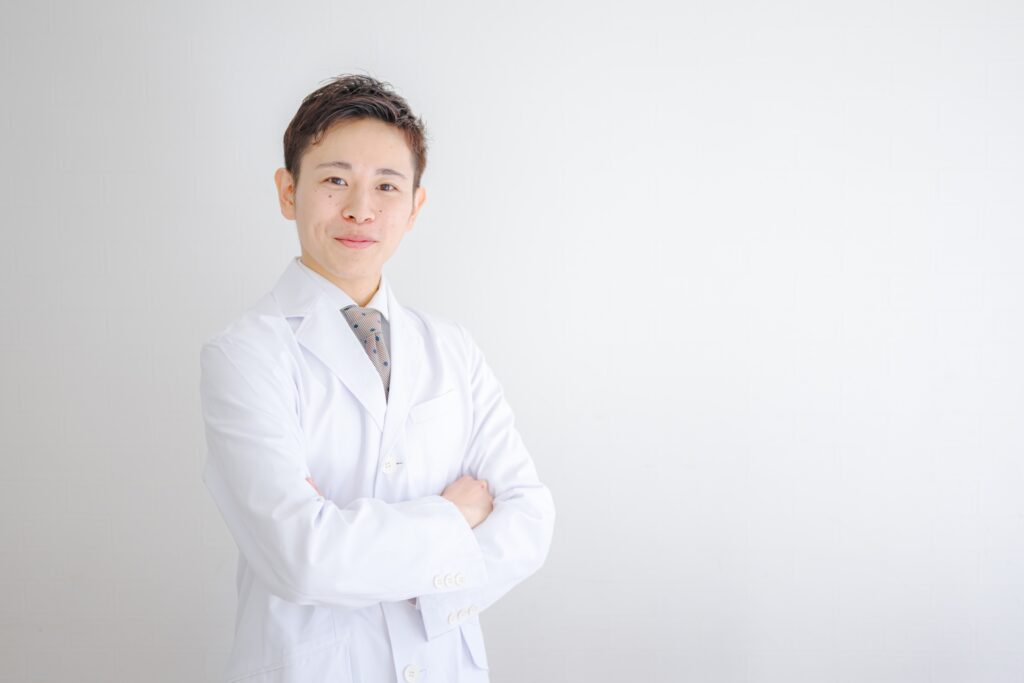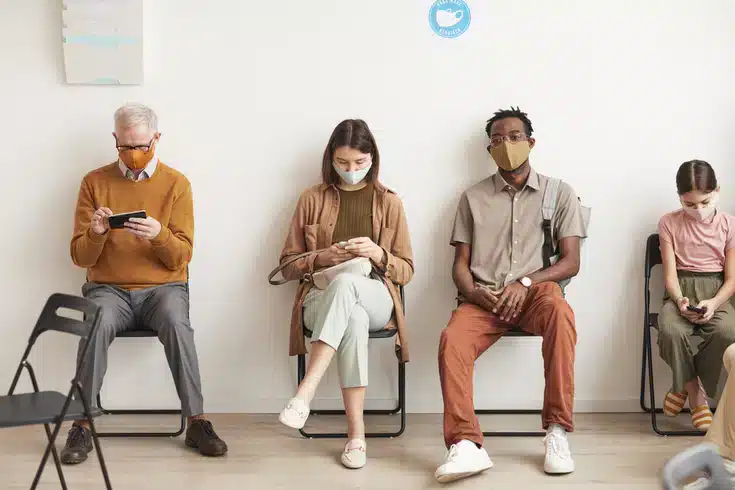What Changed with the Japanese Medical Care Act Amendment in Reiwa 3 (2021)? Explaining the History and Background of the Amendment

Advancements in technology and changes in the era, of course, have led to periodic amendments to the Japanese Medical Care Act, aimed at improving the quality of medical care and ensuring patient safety.
This article will focus on the amendments to the Japanese Medical Care Act of Reiwa 3 (2021), including the measures against emerging infectious diseases that came into effect on April 1, Reiwa 6 (2024), and will also provide an overview of the history of amendments up to this point.
The History of Medical Law Amendments
Originally, the Medical Law was enacted in 1948 (Showa 23) with the purpose of organizing the devastated medical facilities. Since then, the Medical Law has undergone significant amendments from the first to the eighth time. Below, we briefly introduce the major revision periods and their contents.
| Revision | Period | Content |
| 1st | Enacted in 1986 (S61) | Introduction of regional medical planning system Total regulation of hospital bed numbers Efficient utilization of medical resources Promotion of functional sharing and collaboration among medical institutions Limitation on the necessary number of hospital beds within medical areas |
| 2nd | April 1993 (H5) | Establishment of designated function hospitals and recuperative bed group system Clarification of nursing and care Diversification of medical services, promotion of home medical care Relaxation of advertising regulations |
| 3rd | April 1998 (H10) | Creation of regional medical support hospital system Setting up recuperative bed groups in clinics Home care services Functional sharing among medical institutions Legalization of informed consent |
| 4th | March 2001 (H13) | Distinction between general and recuperative beds Review of medical plans Ensuring appropriate inpatient care Relaxation of advertising regulations Mandatory clinical training for doctors and dentists |
| 5th | April 2007 (H19) | Promotion of providing medical information to patients Differentiation of medical functions and construction of regional medical collaboration Addressing the shortage of doctors Ensuring medical safety Reform of the medical corporation system Establishment of the social medical corporation system Abolition of the over 48-hour hospitalization regulation |
| 6th | October 2014 (H26) | Promotion of functional differentiation and collaboration of beds Formulation of regional medical care plans Establishment of regional medical care planning coordination meetings Creation of the regional medical and nursing care comprehensive security fund Promotion of home medical care Introduction of renewal system for designated function hospitals Staffing measures (notification system for nurses) Improvement of working environment in medical institutions (establishment of medical work environment improvement support center) Organization of investigations related to medical accidents Promotion of clinical research Review of the medical corporation system |
| 7th | Announced in September 2015 (H27) | Creation of the system for promoting regional medical collaboration corporations Review of the medical corporation system Ensuring transparency in medical corporation management Strengthening governance of medical corporations Matters related to the division of medical corporations Certification matters for social medical corporations |
| 8th | Established in June 2017 (H29) | Ensuring safety management systems for advanced medical care Clarification of authority obligations for designated function hospitals Establishment of audit committees for designated function hospitals Extension of the transition plan certification system for non-shareholding medical corporations Regulation of supervision provisions for medical institution operators Obligation to explain abnormal responses in pregnant and postpartum women Creation of administrative penalty investigation provisions for nurses, etc. Ensuring quality and accuracy of genetic-related tests, etc. Establishment of regulations on false and exaggerated representations on medical institutions’ websites, etc. |
In the 2021 (Reiwa 3) amendment, there were mainly seven areas of revision. Each will be explained in detail.
Revisions Related to Physicians and Medical Professionals
In the Medical Law of Reiwa 3 (2021), there were also revisions concerning the working styles and scope of work for physicians.
Reform of Physicians’ Working Styles

The first is the reform of physicians’ working styles.
Due to the changing medical needs, the advancement of medical care, and the decrease in workforce due to the declining birthrate, the burden on individual physicians is expected to increase further. Therefore, new revisions have been made and will be implemented in phases starting from April 1, Reiwa 6 (2024).
- Measures to reduce long working hours for physicians and to ensure their health
- Regulation of overtime work limits and application of health protection measures
Given that about 40% of full-time hospital physicians currently work more than 960 hours of overtime and holidays per year, and about 10% work more than 1,860 hours, this can be considered a fundamental reform. The goal is to ensure the health of physicians and enable them to respond more proactively.
Expansion of the Scope of Work for Medical Professionals
The second is the expansion of the scope of work. The Japanese Radiological Technologist Law, the Japanese Law Concerning Clinical Laboratory Technicians and Others, the Japanese Clinical Engineer Law, and the Japanese Emergency Medical Technician Law are targeted, and have been in effect since October 1, Reiwa 3 (2021).
The aim is to promote task shifting/sharing (transferring or sharing tasks traditionally handled by specific professions to other professions) to reduce the burden on physicians. Additionally, the collaboration system has been organized so that medical professionals can make better use of their expertise.
Review of the Physician Training Program
The third is the review of the physician training program.
- Requirement of passing a common examination for eligibility to take the National Medical Licensing Examination
- Clarification of the legal status of medical practices performed by medical students during clinical training
The requirement of passing a common examination will be implemented from April 1, Reiwa 7 (2025), and the clarification of legal status from April 1, Reiwa 5 (2023).
Similarly, the same rules will apply to dentists as well.
Response to Emerging Infectious Diseases
The fourth point is the response to emerging infectious diseases. Emerging infectious diseases refer to diseases that are already known but have become epidemic again with an increasing number of patients. The revision was made due to the significant impact such outbreaks of emerging infectious diseases can have on the general healthcare system, the need for prior measures, and the necessity for smooth communication between administrative bodies.
Following a review of the “Basic Policy (Ministerial Notification)” and the “Guidelines for Medical Plan Creation (Bureau Director Notification)”, each prefecture plans to carry out planning work. This will be implemented from April 1, Reiwa 6 (2024).
Support for Medical Institutions
The fifth area is support for medical institutions. We have positioned the “Hospital Bed Functionality Reorganization Support Project,” established in the fiscal year of Reiwa 2 (2020), within the Comprehensive Regional Medical and Care Fund.
The government will bear the full cost of changes, and medical institutions undergoing reorganization are planned to receive tax incentives. This support is aimed at medical institutions actively working towards the realization of the regional medical care plan, providing assistance in reorganizing hospital bed functions and medical institutions. This has been in effect since April 1, Reiwa 3 (2021).
Clarification of Outpatient Medical Functions and Regional Collaboration
The sixth point concerns changes in outpatient medical care. Currently, outpatient medical care sees a concentration of patients at certain medical institutions, leading to increased waiting times for patients and a heavier workload for attending physicians.
To address this, the establishment of an outpatient function reporting system is being implemented, which requires medical institutions to report on the focused use of medical resources in outpatient services and others. Along with strengthening the primary care physician function, the goal is to clarify and coordinate outpatient functions, thereby reducing waiting times and alleviating the burden on physicians. This has been in effect since April 1, Reiwa 4 (2022).
Extension of the Transition Plan Certification System
Following the amendment of the Japanese Medical Care Act in 2006 (Heisei 18), the establishment of new medical corporations with equity (medical corporations that were funded at the time of establishment) has been regulated, and existing corporations have been encouraged to transition to equity-free medical corporations. The deadline for this transition plan certification system has been extended until September 30, 2023 (Reiwa 5).
Summary: Consult a Lawyer for Medical Law Amendment Compliance

We have explained the seven key points of the Medical Law revision in Reiwa 3 (2021). Particularly, this revision incorporates reforms to doctors’ work styles, a significant change not seen in previous amendments. The Ministry of Health, Labour and Welfare has been promoting work style reforms, as well as placing greater importance on the physical, mental, and social values of workers, including well-being and health management. It is essential not only to understand the history of the Medical Law but also to reconfirm the current law and advance your understanding of its content.
If you have any questions regarding compliance with the Medical Law amendment, please consult a specialist.
Introduction to Our Firm’s Measures
Monolith Law Office is a legal office with extensive experience in both IT, particularly the internet, and law. Our firm supports the management of hospitals and clinics from a legal perspective, and also provides services such as legal checks for articles and landing pages (LPs), guideline creation, and sampling checks for media operators, review site operators, advertising agencies, D2C such as supplements and cosmetics manufacturers, clinics, and ASP operators. Details are provided in the article below.
Areas of practice at Monolith Law Office: Checks for Pharmaceuticals and Medical Devices Act, etc., on articles & LPs[ja]
Category: General Corporate





















